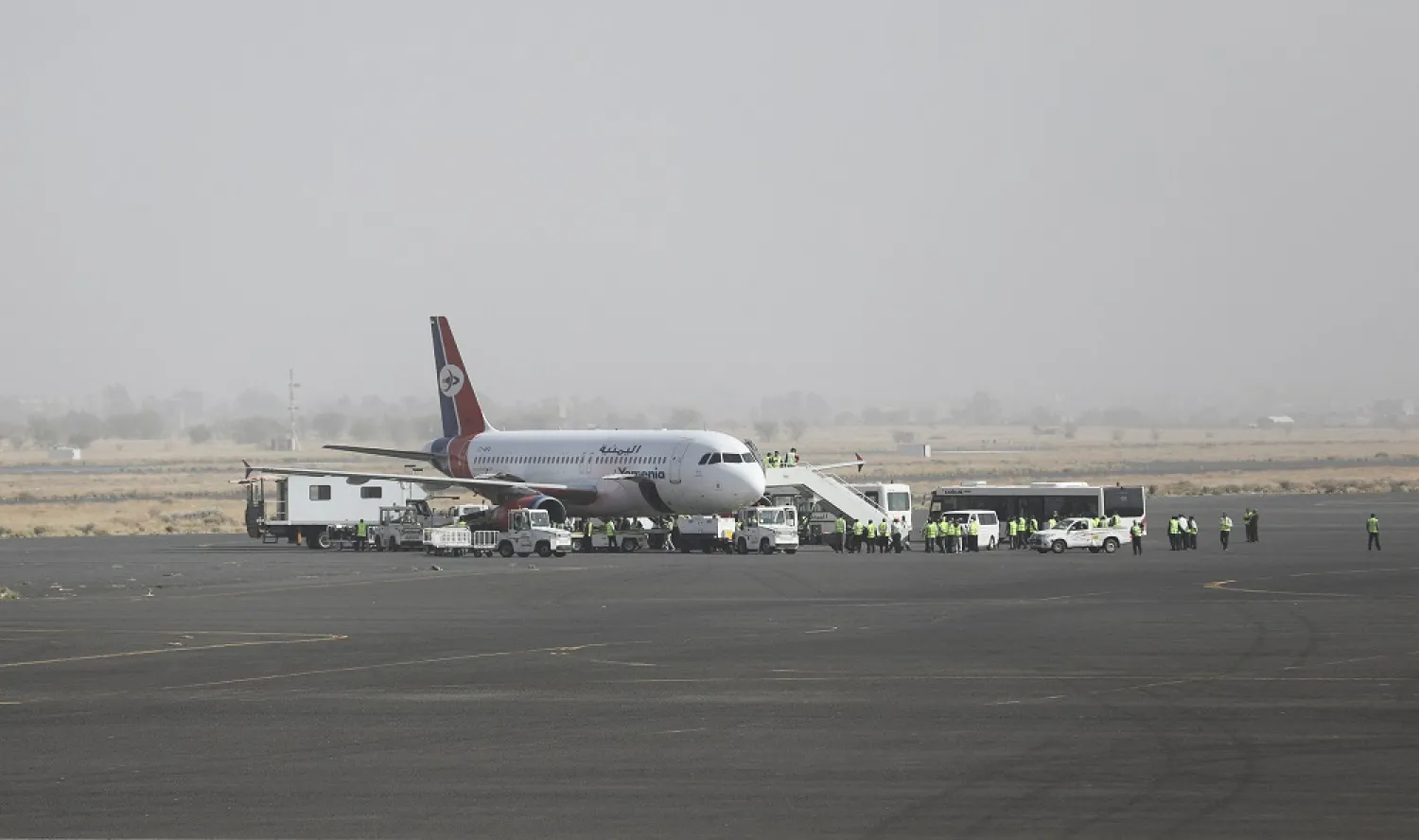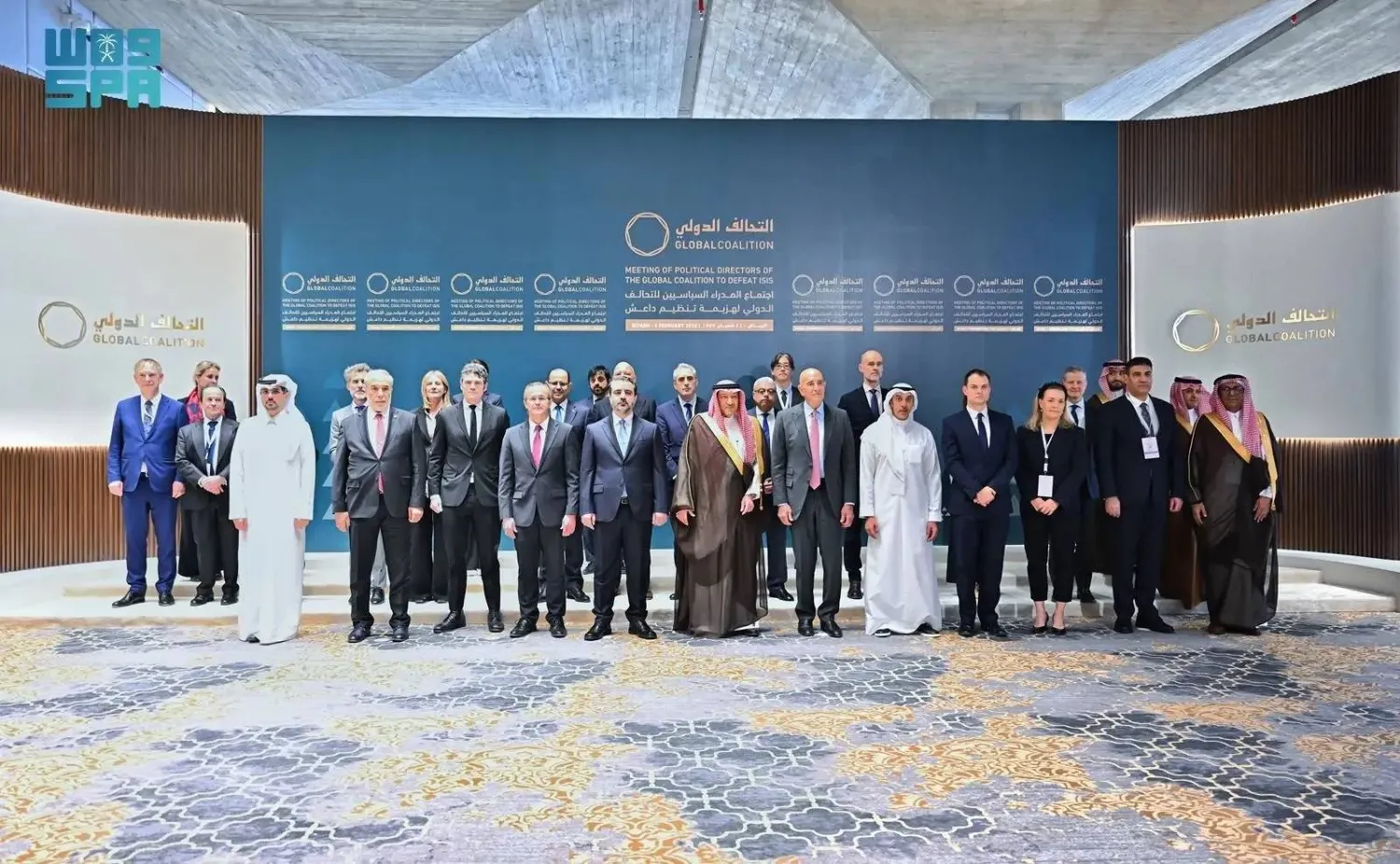Egyptian authorities agreed to receive flights from the Yemeni capital Sanaa, marking a breakthrough in the war-torn country's truce.
The two-month nationwide truce, announced in early April, calls for two commercial flights a week to and from Sanaa to Jordan and Egypt. The first flight from Sanaa in six years took off to Amman last week. Sanaa is held by the Iran-backed Houthi militias.
In a tweet on Tuesday, Yemeni Foreign Minister Ahmed Awad bin Mubarak thanked Egyptian authorities for agreeing to operate direct flights between Sanaa and Cairo.
He said authorities in their countries will work in the coming days to coordinate and complete the technical details to launch the flights.
The Egyptian Foreign Ministry said Foreign Minister Sameh Shoukry had received a telephone call from United Nations Secretary-General Antonio Guterres, who expressed his gratitude to President Abdel Fattah al-Sisi for allowing the flights to be operated.
Shoukry hoped that the move would help consolidate the UN truce in Yemen, ease the suffering of the people and help efforts to achieve stability and security in Yemen.
Other points in the truce include a nationwide ceasefire, allowing 18 fuel ships into Hodeidah port and easing the Houthi siege on Taiz.
In spite of the truce, the military continues to confirm Houthi violations. It said the militias were preparing to launch an attack on the Maqbana front in western Taiz.
The Houthis also launched several drones from Sanaa. They crashed in the capital, killing three people.
Meanwhile, UN Special Envoy for Yemen, Hans Grundberg, concluded on Tuesday a two-day meeting with Yemeni economic experts from diverse backgrounds to consult on priorities for the multi-track peace process. Participants underlined the momentum provided by the truce on economic issues and identified opportunities for incentivizing further progress, said a UN statement.
Discussions centered on identifying key issues to be addressed in a future dialogue between the parties and in the economic track of a UN-led multi-track process. Issues discussed included the coordination of financial and monetary policies, currency exchange rate stabilization across Yemen, public revenues, the financing of public service salaries, the rising costs of goods due to freedom of movement restrictions and double taxation, reconstruction, as well as other strategic questions of priority. Furthermore, discussions emphasized the need for coordination in vital sectors that could have a direct impact on civilians and their livelihoods.
Participants also highlighted challenges faced by the private sector and ways to address those challenges to help revive the Yemeni economy in a manner that serves the public good and the future of Yemen. They also underlined the urgent need to support the Yemeni commercial banking sector and its ability to engage internationally and support trade.
“Addressing the deteriorating Yemeni economy will be central to both alleviating the chronic suffering of Yemeni civilians and reaching a sustainable solution to some of the key drivers of this conflict,” said Grundberg. “It is important to identify those areas where our efforts could prove useful and efficient in helping parties find common ground in addressing the issues that affect all Yemenis across the country.”
Various international stakeholders, including UN humanitarian agencies and international financial institutions participated in the meeting, offering their perspectives and expertise to enrich pointed discussions.









